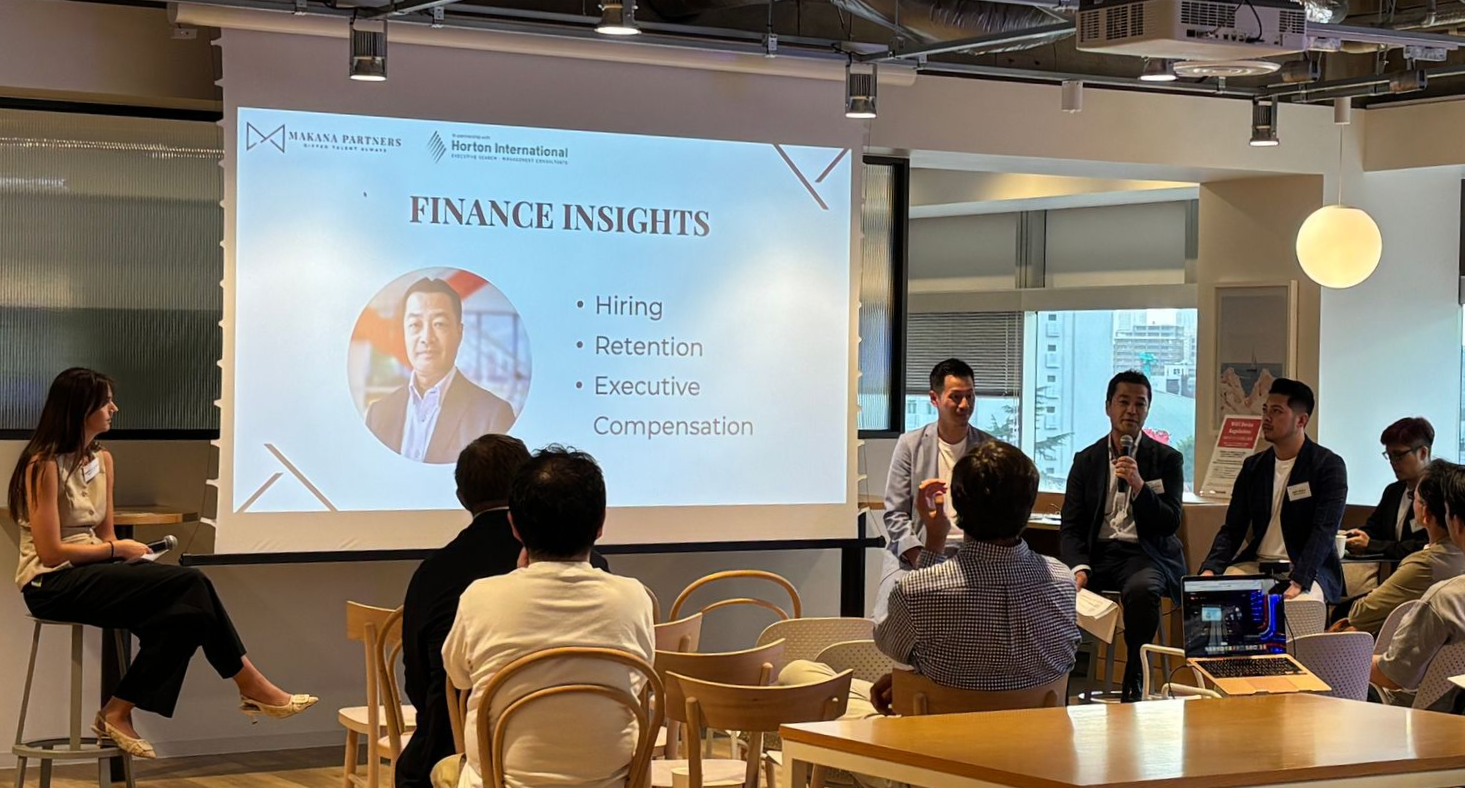Overview of Japan’s Pharma Executive Talent Market and Industry Trends
日本の製薬業界におけるエグゼクティブ人材市場と産業動向の概要
Overview of Japan’s Pharma Executive Talent Market and Industry Trends
1. 日本の製薬業界におけるエグゼクティブ採用の最近の傾向
Recent Trends in Executive Hiring in Japan’s Pharmaceutical Industry
日本の製薬業界では、景気変動の影響を受けにくい特性から、エグゼクティブ人材の採用ニーズが増加傾向にあります。国内外の企業において、マーケティングやMedical Science Liaison(MSL)などの本社機能に特化したポジションでの採用が活発化しています。また、デジタル化とオムニチャネル戦略の進展に伴い、データ分析やデジタル関連職種の求人も増加しています。
加えて、コンサルティングファームやIT企業出身者といった異業界からの登用も顕著です。オンライン面接の普及により、地理的制約を超えた人材アクセスが可能となり、AI技術を活用した採用プロセスの効率化も進んでいます。企業は「エンプロイヤー・ブランディング」に注力し、多様性の推進を背景に、女性や外国人エグゼクティブの登用が加速しています。
The pharmaceutical sector in Japan has shown resilience against economic headwinds, with a notable rise in executive hiring. Specialized positions in marketing and MSL are in high demand, and digital transformation is fueling recruitment in data and tech roles. Companies are increasingly drawing talent from consulting and IT industries. Virtual interviews and AI-driven screening have broadened candidate pools and enhanced recruitment efficiency. Emphasis on employer branding and leadership diversity—especially the inclusion of women and international professionals—is reshaping executive hiring strategies.
2. エグゼクティブ職の給与動向と報酬パッケージ
Salary Trends and Compensation Packages for Executive Roles
近年、日本の上場企業における役員報酬は上昇傾向にあり、成果連動型報酬や株式報酬の割合が増加しています。2023年度には、年収1億円を超える役員が1,120人となり、報酬開示企業も509社と過去最多を記録しました。特にCEO報酬の2/3が変動報酬というケースもあり、欧米型報酬制度が定着しつつあります。例えば、武田薬品のCEOの報酬は20億円を超える例もあります。また、物価上昇や政府の賃上げ推進により、一般従業員の給与も上昇しています。
Compensation for executives is trending upward, with performance-based and stock-linked pay gaining prominence. In FY2023, 1,120 executives earned more than ¥100 million, with 509 companies disclosing such information. CEO compensation in global firms can be especially high—Takeda’s CEO, for instance, received over ¥2 billion. Broader wage inflation and government initiatives are also lifting salaries for general employees.
3. 必要とされるスキルと顕著なスキル不足
In-Demand Skills and Notable Skill Shortages
製薬業界には高い専門性を持つ人材が多数存在する一方で、特に外資系企業においては、英語での発信力や自己主張力が不足しているケースが多く見られます。そのため、バイリンガルで異文化適応力を持つリーダー層への需要が高まっています。
薬事分野では、国際経験と英語力の両方を兼ね備えた人材が不足しており、育成型採用が進められています。さらに、デジタルスキルや戦略構築能力を備えた人材も希少で、メディカルアフェアーズにおいては実務経験と幅広い視野を持つプロフェッショナルが求められています。
While the industry boasts a technically proficient workforce, there remains a shortfall in business communication skills—particularly English fluency and assertiveness in multinational settings. Consequently, there’s strong demand for bilingual, culturally adaptive leaders. Regulatory roles suffer from a lack of internationally experienced candidates. Additionally, digital skills and cross-functional strategy expertise are scarce, especially in Medical Affairs, where broad, interdisciplinary experience is essential.
4. エグゼクティブ人材に関する研修・教育の動向
Key Developments in Training and Education for Executive-Level Pharma Talent
企業はエグゼクティブ人材の育成を戦略的に進めており、リーダーシップ研修やグローバル人材開発プログラムを導入しています。部門間のローテーションやMBA留学支援などにより、多様な経験を提供しています。加えて、階層別研修やメンター制度の導入も進んでおり、実務経験を通じてリーダーシップを育む機会が増加しています。
特に、異文化間でのコミュニケーション能力向上に向けたプログラムや、国際プロジェクトへの参加による実践型研修が重視されています。
Pharma companies are increasingly focused on cultivating future leaders through structured training programs. These include rotational assignments, MBA sponsorships, and tiered leadership development initiatives. Cultural competency and communication enhancement are key themes. International projects and mentoring frameworks are being leveraged to provide real-world leadership exposure and global readiness.
5. 日本の製薬市場の発展動向(国内企業および外資系企業)
Market Development Trends in Japan’s Pharmaceutical Industry – Domestic and Foreign Players
日本は世界第3位の製薬市場であり、2022年の市場規模は約1,060億ドル、2026年には1,180億ドルに達すると予測されています。政府は薬価制度の見直しとイノベーション促進に注力しており、スタートアップ支援や創薬に関する5カ年計画も進行中です。
国内企業は、バイオ医薬品、再生医療、デジタルヘルスといった先端分野への投資を拡大しています。外資系企業も新薬の導入や共同研究を強化しており、国内外企業間の競争と協業が並行して進行しています。
Japan’s pharmaceutical market remains vital, valued at approximately $106 billion in 2022 and expected to grow to $118 billion by 2026. Policy shifts favoring innovation, startup support, and streamlined drug development are underway. Domestic firms are investing in biologics, regenerative medicine, and digital health, while global players are increasing new drug launches and partnerships. The environment is one of both competitive and cooperative engagement.
6. 2026年の人材および市場の展望
Predictions for the Talent and Market Landscape in 2026
今後、エグゼクティブ人材を巡る競争はさらに激化すると予想されます。英語力とデジタルリテラシーを備えた次世代リーダーへの需要が高まる中、異業種や海外からの人材登用が進む見通しです。
報酬面では、成果連動型報酬のさらなる普及が見込まれ、年収1億円を超えるエグゼクティブの数も増加すると予測されます。また、ダイバーシティの進展により、女性や外国人幹部の比率が増えるでしょう。
医薬品市場は引き続き堅調な成長を遂げ、革新的な医薬品や創薬支援策を通じて、日本発のグローバルイノベーションが加速する可能性があります。
By 2026, executive hiring will become even more competitive. Strong English communication and digital expertise will be key differentiators. Cross-industry and international talent mobility will increase. Compensation packages will skew further toward performance-based models, and leadership diversity—both gender and international—will expand. The pharma market will grow steadily, and innovation fostered by startups and supportive policy will begin yielding significant results.
結論
Conclusion
日本の製薬業界は、高齢化社会による医療需要の拡大、政策的なイノベーション推進、そしてグローバル化の進展により、大きな変革期を迎えています。これに伴い、エグゼクティブ人材市場にも質的・量的な変化が求められています。バイリンガルでデジタルスキルを備えた多様性のあるリーダー人材が一層重要となり、異業種・国際市場からの人材登用や内部育成の両面で戦略的な人材マネジメントが必要とされています。
報酬制度も成果主義にシフトし、グローバル基準を取り入れた構造へと変化を遂げつつあります。企業は、優秀な人材を確保し持続的な成長を実現するために、柔軟性と革新性のある人事戦略を構築することが不可欠です。
Japan’s pharmaceutical industry is undergoing a pivotal transformation driven by demographic shifts, pro-innovation policies, and increasing globalization. As a result, the executive talent market is evolving in both scope and expectations. The demand for bilingual, digitally fluent, and diverse leaders is intensifying, necessitating cross-industry and international hiring alongside robust internal development programs.
Compensation structures are increasingly aligning with global standards through performance-linked models. To secure top talent and ensure sustainable growth, companies must craft forward-looking, adaptable human capital strategies that embrace innovation and diversity at the executive level.










